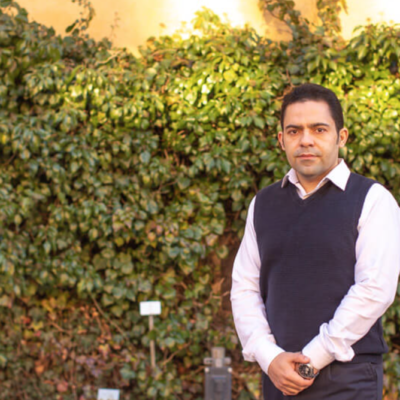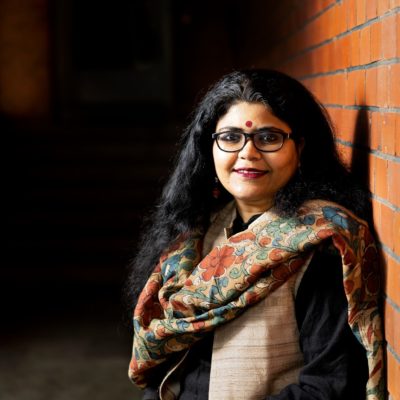Meet Assem Abu Hatab at the Nordic Africa Institute and Swati Parashar at Gothenburg University.
 World Economic Forum, annual meeting. Evangeline Shaw / Unsplash.
World Economic Forum, annual meeting. Evangeline Shaw / Unsplash.
Appointed by the Government of Sweden in 2021, Sida’s Scientific Advisory Board provides recommendations to the Swedish International Development Cooperation Agency (Sida) on strategic directions and research-related matters within the agency’s research cooperation areas.
Bridging science and policy is a guiding aim of SweDev. Therefore, SweDev is proud to see two of its members represented in Sida’s Advisory Board. In conversation with the SweDev secretariat, Assem Abu Hatab and Swati Parashar presented their research, contributing to Swedish development cooperation objectives and challenges.
Assem Abu Hatab is a Senior Researcher in Development Economics at the Nordic Africa Institute (NAI), and an Associate Professor in Economics at the Swedish University of Agricultural Sciences (SLU). He is an applied economist with broad empirical interests and focus on food systems.

Assem Abu Hatab. Photo: North Africa Institute
Q: Can you briefly describe your own research area at NAI and at SLU?
I joined NAI three months ago, carrying out research previously conducted at the Economics Department. The focus of my research is on food systems in low- and middle-income countries, how these can help countries to achieve the SDGs, and how sustainable management can enable countries to be more food secure. Being an applied economist, I use data and econometrics, to produce quantitative research. Besides working extensively on matters related to China and India at SLU, I will be now mainly focusing on African countries, especially the MENA region.
Q: How will your expertise and research be valuable in your role at Sida’s Scientific Advisory Board?
I will start with a few data. The management and economics of the agricultural sector represent ¼ of the African GDP and provide work for 60% of the active working population in Africa. Food systems are the fundamental driver of society but are impacted by phenomena such as urbanization, population growth, climate change, and resource constraints.
These challenges will inevitably affect the ability of the food system to achieve economic growth. Given the importance of agriculture in the African economy, it depends on the ability of African actors to pursue more resilient food systems. All in all, this is the background I bring to Sida, and I do believe these can be relevant for development cooperation.
Q: What are the key challenges that you think you’ll face as a member of Sida’s Scientific Advisory Board?
It is difficult to answer as I only started in March. We work in small groups of researchers in a very sharing environment. The board knows how to deal with any challenges that are always upcoming, externally, and internally. The mission and purpose of the institution are to absorb these and take them as an opportunity to grow and learn.
Two years ago, most of the focus was on Covid-19 and now new challenges: Sida should always be ready to adapt to ongoing changes. That it’s how they can create an impact. Climate change adaptation in Africa is one focus, while in the MENA region access to water is the priority. These agencies must tailor to the needs of specific regions. Therefore, Sida Advisory Board is and needs to be reactive and ready to respond to any challenge.
Q: Which recommendations do you want to include in Sida’s strategic directions? Do you believe there should be more room for including research-based knowledge in decision-making?
A: I will bring my expertise in food systems, but it is too early to talk about recommendations. Economic growth and development in Africa will depend on agriculture: Africans are intrinsically linked to agriculture. I will never cease to emphasize this and not so much because it is the field of study, but because it is based on facts. There is room to include research and researchers. The value of researchers and practitioners in enhancing the use of data has always been emphasized with the purpose of creating usable knowledge. Research jointly produced is more likely to be used in practice. Use the supply and demand example to understand the ongoing scenario: the more effective the demand, the more research will be produced. These actions must work in synergy: practitioners are involved in a just implementation and researchers can tailor down to specific needs.
Q: SweDev aims to strengthen collaboration between development researchers and practitioners. What is your view on the need for it?
A: I have been a SweDev member for a year, and I love reading your informative newsletter. There was a need for SweDev, and I hope the community will enlarge. However, SweDev needs to come up with a unique agenda setting. The network needs to build trust and partnership with additional research institutions and universities. All in all, I appreciate your focus on persuasive communication pathways: the value of any research is affected by communication. This is a twofold process for SweDev: on the one hand, listening to researchers’ priorities, and on the other hand, listening to the research outcomes: this is how the network can grow and reach out to policymakers.
Swati Parashar is a Professor in Peace and Development at the School of Global Studies, University of Gothenburg. She predominantly works in the field of critical security and war studies, feminist, and postcolonial international relations.
Written by Alessandro Giacardi, Communication, and Research Intern at Stockholm Environment Institute (SEI) for the Development and Aid Policy Team and SweDev. Edited by Alice Castensson, Associate at Stockholm Environment Institute (SEI) for SweDev, and Ylva Rylander, Communications Officer at Stockholm Environment Institute (SEI).

